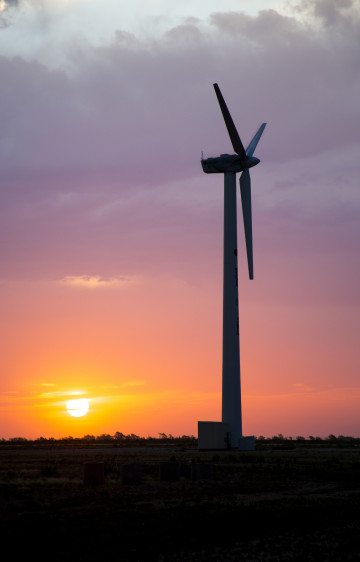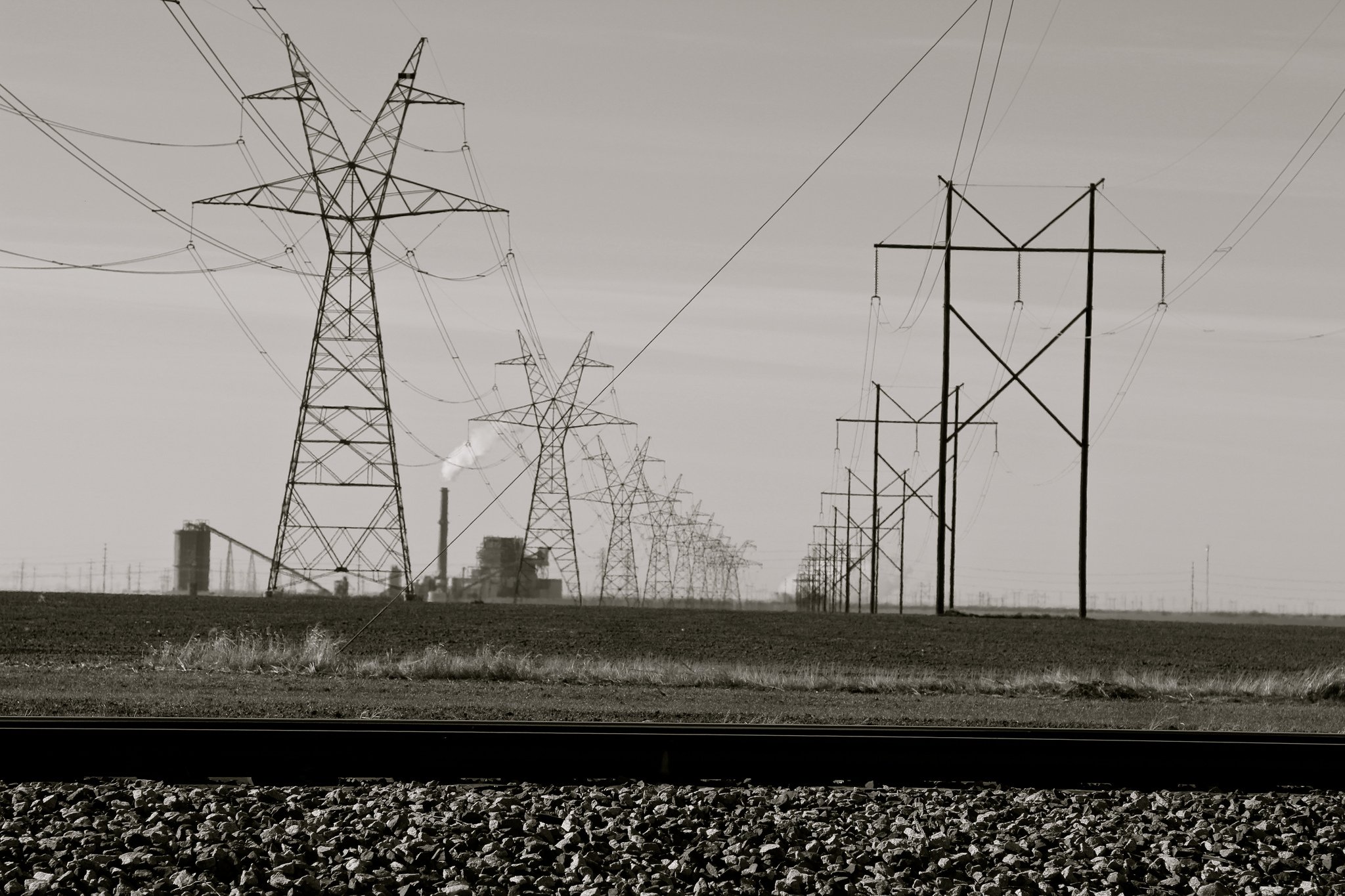
Environmentalists Fear Conservative Group’s Push to End Corporate Subsidies is Really Just a Hit on Renewables
“TPPF only talks about tax breaks for renewables without touching the vastly greater subsidies that support coal and other fossil fuels.”

Above: Wind farms and oil and gas infrastructure make up the majority of the projects that have received tax breaks through the Chapter 313 program.
In the last few months, the Texas Public Policy Foundation (TPPF) has ramped up its war on wind. To kick off the 86th Texas Legislature, the Austin-based conservative think tank published four reports on the scourge of renewables and how they’re “scarring rural Texas.” The reports focus on two state tax abatement programs — the Property Redevelopment and Tax Abatement Act and the Texas Economic Development Act.
The corporate welfare programs, often referred to as Chapter 312 and 313 for their place in the tax code, have handed out billions of dollars in tax breaks to a slew of businesses, including those in the oil and gas, wind and manufacturing industries. But the foundation has chosen to focus on the use of these programs by the wind industry and is advocating ending the subsidies for all renewables. That’s despite — or maybe because of — the fact that Texas continues to lead the nation in the production of wind energy.

“When the government starts to regulate things, fund things or provide services … you start losing innovation,” Bill Peacock, vice president of research at TPPF, said at a recent panel on renewable subsidies organized by the group. “The same thing can be said about renewable energy in a lot of ways.”
The Chapter 312 program expires this year and Chapter 313 expires in 2022. TPPF is urging lawmakers to not renew 312 this session and to phase out 313. While the influential group is opposed to subsidies more broadly and is calling for an end to tax breaks for all industries under chapters 312 and 313, its particular focus on renewables and omission of the use of the programs by oil and gas companies has the wind industry and environmentalists nervous. They fear that instead of retiring the tax breaks across the board, lawmakers will simply exempt wind and other renewables.
The distrust is well-placed, since TPPF has a long history of siding with the fossil fuels industry. In 2012, the Observer uncovered tax filings confirming suspicions that the foundation’s donors included the Who’s Who of Big Oil: the Koch brothers, Exxon and TXU Energy, among others. TPPF’s policy positions are also telling. The group has denied human-caused climate change is occurring, and it supports the growth of the oil and gas industry. Kathleen Hartnett White, director of TPPF’s Armstrong Center for Energy & the Environment, once claimed that “fossil fuels dissolved the economic justification for slavery” and “carbon dioxide has none of the attributes of a pollutant.” White failed to secure a Senate confirmation for a position on the White House Council on Environmental Quality last year, but a number of TPPF alums have gone on to positions in the Trump administration.
“We’re going to be fighting to move Texas into the future, and TPPF is going to keep fighting to keep us addicted to coal.”
In an interview with the Observer, Peacock said the group is opposed to subsidies for all industries, but that they’ve focused on wind “because of the harm that it’s doing to Texas [and] the Texas electricity grid.” In particular, Peacock said that chapters 312 and 313 were intended to create more jobs, but that many wind projects get exempted from meeting the job creation requirement.
Jeffrey Clark, executive director of the Wind Coalition, was cynical about Peacock’s assurances that the group wants to end tax breaks for all, not just the wind industry. “[TPPF] will say that, but they never do that,” Clark said. “They say it because they know how hypocritical they sound if they don’t. You’ll see no concerted effort to end [chapters] 312 and 313, like you’ll see to end it for renewables.”

TPPF says it’s targeting renewables because the wind industry gets so many tax breaks. In a December report, Stanley Greer, a senior fellow at TPPF, wrote that “As of May 2016, there were 311 active Chapter 313 projects of which 53 percent were in renewable energy” and that roughly $1.8 billion in tax breaks had been awarded to renewable energy projects. While that is true, the group failed to mention that the manufacturing industry, which includes oil and gas, made up another 44 percent of the projects approved for Chapter 313 tax breaks. What’s more, the manufacturing industry received vastly more money through tax breaks than the wind industry: $5.3 billion in abatements, compared to the wind industry’s $1.8 billion.
“TPPF only talks about tax breaks for renewables without touching the vastly greater subsidies that support coal and other fossil fuels,” said Clark. “I find that disingenuous.”
At least a few lawmakers appear to be interested in ending subsidies for renewables. At a TPPF conference in Austin last week, state Senator Kelly Hancock, R-North Richland Hills, said the renewable energy subsidies disincentivize innovation. “When we give property tax breaks, 312 and 313, to essentially a competitor in the market that’s already getting paid to produce, it is really a challenging market to maintain a level playing field,” he said.
In the last few weeks, lawmakers have introduced bills to renew Chapter 312, but so far there have been no bills addressing Chapter 313. Clark said it was “undoubtable” that legislation to end the tax breaks would be proposed this session. “We’re going to be fighting to move Texas into the future, and TPPF is going to keep fighting to keep us addicted to coal,” he said.

